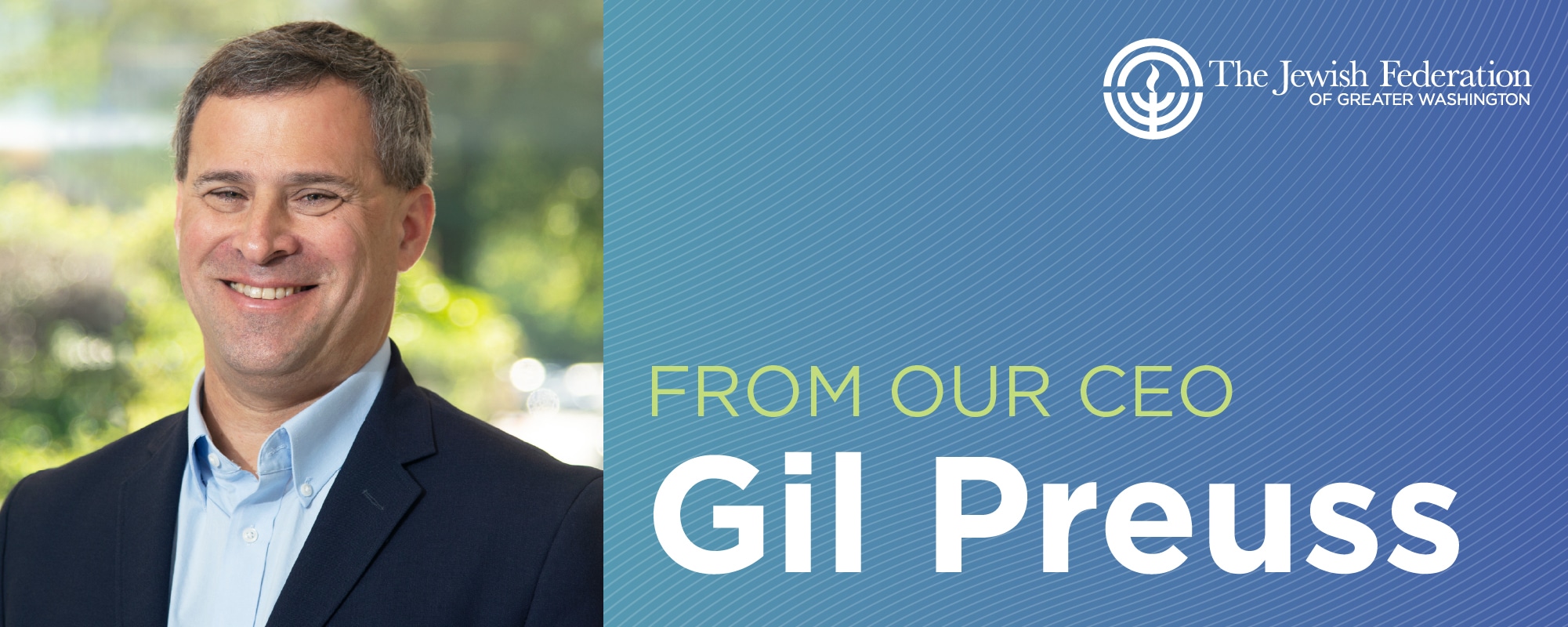-
06 March 2020

This is part of a series of messages about the way we are thinking about our work in 2020 and beyond.
This past week, Israel held its third parliamentary election in less than a year, nearly eighteen thousand gathered in DC for the American Israel Public Affairs Committee’s annual policy conference, and several US presidential candidates went on record to discuss their views on US-Israel relations. It was an important week in regards to Israel.
This message, however, is not about any of these events. In fact, this piece is about our goal to look beyond any given news cycle or recent development and think through the longer-term questions, challenges, and opportunities that Israel and the American Jewish community face. At Federation, we have articulated a vision in which we embrace Jewish peoplehood and Israel. To do this, we must focus on building an environment that allows everyone in our community to form personal and enduring connections to Israel.
In particular, we work with a variety of partners who are committed to helping more people get to know Israel for themselves. Honeymoon Israel, Birthright Israel, Federation’s Israel YOUR Way Mission, and others, are bringing community members on thoughtful trips to Israel and helping them form deeper, more personal connections to the country and its people. It is hard to feel an emotional bond to another person or place without direct contact and experience. As a community, we need to consider how to grow these programs and other opportunities.
Of course, we are also working to bring Israel here to Greater Washington. Federation’s Community Shlichim Program, for instance, brings cohorts of young Israelis to schools and synagogues so that more people have a chance to meet Israelis and learn about Israel beyond the headlines. The program helps to ensure that Israel is more than a political talking point for our community members.
We are also not shying away from discussing Israel’s complexities. We know that a healthy and robust conversation about Israel includes an honest look at some of its most pressing social and political challenges. We want to help more people learn about these issues and share their own thoughts and questions. Indeed, this is the guiding principle behind our partnership with the Shalom Hartman Institute of North America. The goal of this partnership is to create more opportunities for community members to hear from respected experts and discuss some of the biggest questions facing American Jews and Israel.
We know that this type of dialogue is not always easy. I have heard from many community members who feel they do not have the expertise or the knowledge to enter into discussions about Israel. And when they do try, they can be shut down and attacked for not having a full and comprehensive grasp of Israel’s history and politics. As a result, they feel discouraged, tired, and turned off from finding out what role Israel might play in their lives. At Federation, we not only want to guard against this phenomenon, we also want to proactively provide space for people to ask questions and explore answers together.
After all, the story of modern-day Jewish peoplehood is just beginning to unfold. It was not until the advent of Zionism and the creation of the Jewish state that we, most recently, saw ourselves as a nation. Moving forward, it is incumbent upon each of us as individuals, and as a community, to continue strengthening this common identity, even as we grow and evolve as a people in different contexts.
There is a famous Hebrew song based on a poem by Amir Gilboa from 1953 celebrating the foundation of the State of Israel. As one of the lyrics describes, “Suddenly a person gets up, feels himself a nation and begins to walk.” This line was running through my head this week because together, we get to decide in which direction we continue to walk. How and to what degree we feel like a nation is a conversation that is open to us all.
Shabbat Shalom,
Gil
